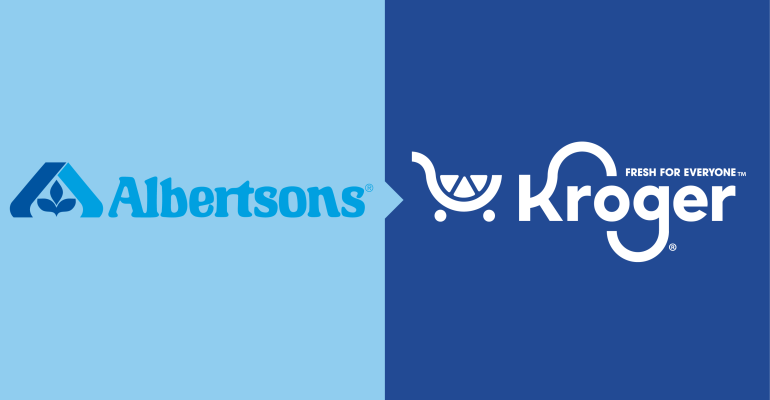 Rob Kaufelt was the owner of Murray's Cheese Shop in Greenwich Village, which he sold to Kroger Supermarkets. Today there are over 1,000 Murray's cheese shops across the land. Prior to that, he pioneered upscale supermarkets as President of Mayfair Supermarkets (Foodtown), and specialty foods at Kaufelt's Fancy Groceries. He lives in New York City with his wife and three children.
Rob Kaufelt was the owner of Murray's Cheese Shop in Greenwich Village, which he sold to Kroger Supermarkets. Today there are over 1,000 Murray's cheese shops across the land. Prior to that, he pioneered upscale supermarkets as President of Mayfair Supermarkets (Foodtown), and specialty foods at Kaufelt's Fancy Groceries. He lives in New York City with his wife and three children.
Whether the merger succeeds, of course, is up to the government — Management can make the case that, in order to remain competitive with Walmart and Costco, and with Aldi and Lidl and Trader Joe’s creeping up from behind, a traditional chain needs all the muscle it can muster.
Kroger, like most major public companies, will finance this transaction with debt.
I was wary of debt early in my career, perhaps because I was raised by parents who came of age in the Depression. To this day I rarely borrow money. However, in those days we needed to borrow to make the small acquisitions of single stores and small chains that fueled our growth.
In the 1980s, the investment banking company Bear Stearns pitched my father, CEO Stanley Kaufelt, on going private. Mayfair would borrow money to buy back all the outstanding shares at a premium over the market price. He jumped at the idea. The notion was that interest paid on debt is tax-deductible and thus preferable to paying taxes on net profits.
The plan was later to go public again and magically, our market value would be much higher than it would have been had we done nothing. To me, then naive in the ways of Wall Street, that seemed a peculiar way to manage a business, as our debt was minimal and the business was profitable. The stock price had gone up 2500% in the 1980s. If interest rates were to rise, as they did, all that debt would be a drag on growth. That’s what happened, and the company was eventually sold to Ahold.
Over leveraged companies owned by private equity are often stripped of available cash and often suffer from an inevitable lack of funding in essential areas. The supermarket industry is capital, labor, real estate and labor-intensive. When management cuts capital expenditures and needs repairs to the bone, and raises prices, that maximizes cash flow in the short term but eventually destroys the business.
In my opinion, Albertsons is in a place where it needs a buyer. So, enter Kroger. Albertsons was also at risk of losing a controversial $4 billion payout, which the court eventually approved. Kroger, a better-managed company, seized the opportunity. The question then became, would this eliminate competition, hurt consumers already battered by inflation with rising prices on groceries, and eliminate jobs? That’s a hard sell in hard times.
Despite the threat posed to workers by robotic warehouses and other tech, it seems that people are still needed to run things, fix things, or oversee things, and that means finding, training, and most of all retaining workers in the tightest labor market in decades, with an unemployment rate under 4%. That’s partly a post-Covid, demographic problem, and there is no immigration proposal in sight to help solve the labor shortage.
Kroger CEO Rodney McMullen has gambled big on this idea, and if it works, he will surely be well rewarded. Some may say he already is. According to The New York Times, Kroger has one of the country’s starkest gaps between a chief executive’s compensation and that of the median employee — a ratio of 909 to 1. But then our system is based on great rewards for big risks.
Yet even if the merger succeeds, it’s not clear that sales per unit will increase, nor overall profitability, nor the stock price.
I like old-fashioned companies and brands myself. I’ve often wondered why companies that once ruled, like GE, looked down on appliances, or why Sears lost its incomparable catalog instead of moving online before Amazon took over. We can all name other favorite brands that new owners didn’t understand and let fail. The grocers I loved were Balducci’s and Dean & DeLuca – both gone now in my neighborhood – while the great Fairway still limps along.
But Kroger knows itself well, knows its brand identity, and is unlikely to soon forget what it stands for.
Stay tuned for Part 2, where I talk about pros and cons of the merger.
**
Disclaimer: The views and opinions expressed in this article are those of the author and do not necessarily reflect the views or positions of Supermarket News





